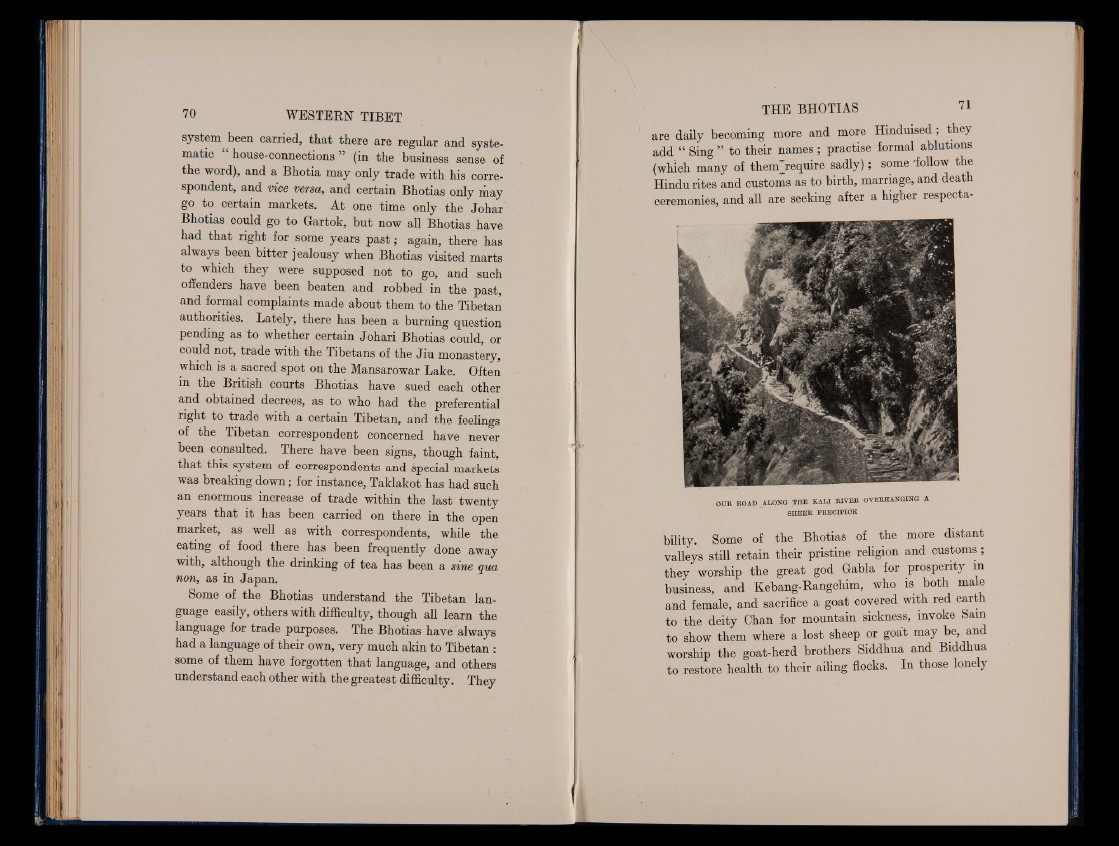
system been carried, that there are regular and systematic
house-connections ” (in the business sense of
the word), and a Bhotia may only trade with his correspondent,
and vice versa, and certain Bhotias only may
go to certain markets. At one time only the Johar
Bhotias could go to Gartok, but now all Bhotias have
had that right for some years p a s t; again, there has
always been bitter jealousy when Bhotias visited marts
to which they were supposed not to go, and such
offenders have been beaten and robbed in the past,
and formal complaints made about them to the Tibetan
authorities. Lately, there has been a burning question
pending as to whether certain Johari Bhotias could, or
could not, trade with the Tibetans of the Jiu monastery,
which is a sacred spot on the Mansarowar Lake. Often
in the British courts Bhotias have sued each other
and obtained decrees, as to who had the preferential
right to trade with a certain Tibetan, and the feelings
of the Tibetan correspondent concerned have never
been consulted. There have been signs, though faint,
that this system of correspondents and special markets
was breaking down; for instance, Taklakot has had such
an enormous increase of trade within the last twenty
years that it has been carried on there in the open
market, as well as with correspondents, while the
eating of food there has been frequently done away
with, although the drinking of tea has been a sine qua
non, as in Japan.
Some of the Bhotias understand the Tibetan language
easily, others with difficulty, though all learn the
language for trade purposes. The Bhotias have always
had a language of their own, very much akin to Tibetan :
some of them have forgotten that language, and others
understand each other with the greatest difficulty. They
are daily becoming more and more Hinduised; they
add “ Sing ” to their names ; practise formal ablutions
(which many of themjequire sadly); some 'follow the
Hindu rites and customs as to birth, marriage, and death
ceremonies, and all are seeking after a higher respecta
OUR ROAD ALONG THE KALI RIVER OVERHANGING A
SHEER PR ECIPICE
bility. Some of the Bhotias of the more distant
valleys still retain their pristine religion and customs;
they worship the great god Gabla for prosperity in
business, and Kebang-Rangchim, who is both male
and female, and sacrifice a goat covered with red earth
to the deity Chan for mountain sickness, invoke Sam
to show them where a lost sheep or goat may be, and
worship the goat-herd brothers Siddhua and Biddhua
to restore health to their ailing flocks. In those lonely